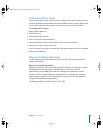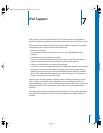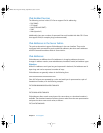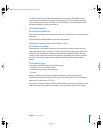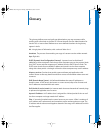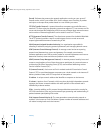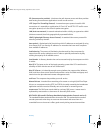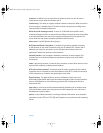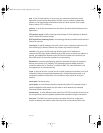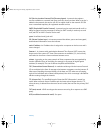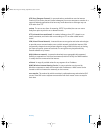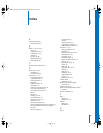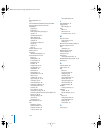
Glossary 89
ISP (Internet service provider) A business that sells Internet access and often provides
web hosting for ecommerce applications as well as mail services.
L2TP (Layer Two Tunnelling Protocol) A network transport protocol used for VPN
connections. It is essentially a combination of Cisco’s L2F and PPTP. L2TP itself is not an
encryption protocol, so it uses IPSec for packet encryption.
LAN (local area network) A network maintained within a facility, as opposed to a WAN
(wide area network) that links geographically separated facilities.
LDAP (Lightweight Directory Access Protocol) A standard client-server protocol for
accessing a directory domain.
lease period A limited period of time during which IP addresses are assigned. By using
short leases, DHCP can reassign IP addresses on networks that have more computers
than available IP addresses.
load balancing The process of distributing the demands by client computers for
network services across multiple servers in order to optimize performance by fully
utilizing the capacity of all available servers.
local domain A directory domain that can be accessed only by the computer on which
it resides.
Mac OS X The latest version of the Apple operating system. Mac OS X combines the
reliability of UNIX with the ease of use of Macintosh.
Mac OS X Server An industrial-strength server platform that supports Mac, Windows,
UNIX, and Linux clients out of the box and provides a suite of scalable workgroup and
network services plus advanced remote management tools.
mail host The computer that provides your mail service.
Manual Unicast A method for transmitting a live stream to a single QuickTime Player
client or to a computer running QTSS. An SDP file is usually created by the broadcaster
application and then must be manually sent to the viewer or streaming server.
master zone The DNS zone records held by a primary DNS server. A master zone is
replicated by zone transfers to slave zones on secondary DNS servers.
MS-CHAPv2 (Microsoft’s Challenge Handshake Authentication Protocol version 2)
The standard Windows authentication scheme for VPN. This authentication method
encodes passwords when they are sent over the network and stores them in a
scrambled form on the server. It offers good security during network transmission.
LL2351.Book Page 89 Monday, September 8, 2003 2:47 PM



